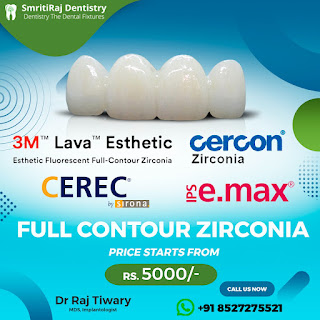Dental Emergency: What to Do When You Need Urgent Care
In the realm of healthcare, dental emergencies can often be overlooked or misunderstood. However, when a sudden dental issue arises, knowing how to respond promptly can make a significant difference in preventing further damage and alleviating pain. Whether it's a severe toothache, a broken tooth, or a knocked-out tooth, understanding the steps to take during a dental emergency is crucial. Let's delve into what you need to know when faced with a dental crisis.
Assess the Situation
The first step in managing a dental emergency is to assess the situation calmly. If you're experiencing severe pain, bleeding, or trauma to the mouth, it's essential to remain as composed as possible. Take a moment to evaluate the severity of the injury or condition before taking any action.
Contact Your Dentist
Once you've assessed the situation, the next step is to contact your dentist immediately. Many dental clinics in Dwarka reserve time slots specifically for emergencies, and your dentist will provide guidance on the next steps based on your condition. If the emergency occurs outside of regular office hours, most dental practices have an after-hours emergency line or will direct you to an emergency dental service.
Manage Pain and BleedingWhile awaiting further instructions from your dentist, you can take steps to manage pain and bleeding. Rinse your mouth gently with warm water to clean the area and alleviate discomfort. If there's bleeding, apply gentle pressure to the affected area with a clean piece of gauze or a damp tea bag. Avoid aspirin directly on the gums, as it can cause further irritation.
Toothache
Toothaches can range from mild discomfort to excruciating pain and may indicate various underlying issues such as decay, infection, or a dental abscess. Over-the-counter pain relievers can provide temporary relief until you can see your dentist. Avoid placing aspirin directly on the tooth or gums, as this can lead to chemical burns.
Broken or Chipped Tooth
If you've broken or chipped a tooth, gather any broken pieces if possible and rinse them with warm water. Store them in a container of milk or saliva to keep them moist. Avoid touching the root of the tooth and refrain from attempting to reattach the broken pieces yourself. Your dentist will assess the damage and determine the best course of action, which may include bonding, a dental crown, or a root canal procedure.
Knocked-Out Tooth
A knocked-out tooth is a dental emergency that requires immediate attention to increase the chances of successful reimplantation. Handle the tooth carefully by the crown (top part) and avoid touching the root. Rinse the tooth gently with water if it's dirty, but do not scrub or remove any attached tissues. Try to reinsert the tooth into its socket if possible, ensuring it's facing the right way. If reinsertion isn't feasible, place the tooth in a container of milk or saliva to keep it moist and bring it with you to the dentist as soon as possible.
Prevention is Key
While knowing how to respond to a dental emergency is crucial, prevention is always the best approach. Maintain good oral hygiene by brushing and flossing regularly, and attend routine dental check-ups to catch any potential issues early. Wear a mouthguard during sports activities to protect your teeth from trauma, and avoid chewing on hard objects that could cause dental damage.
In conclusion, dental emergencies can be distressing, but knowing how to react calmly and promptly can make all the difference. By following these steps and seeking professional dental care without delay, you can effectively manage a dental crisis and safeguard your oral health for the long term. Remember, your dentist in Dwarka, Delhi is your partner in maintaining a healthy smile, so don't hesitate to reach out if you find yourself in need of urgent dental care.
.jpg)


Comments
Post a Comment